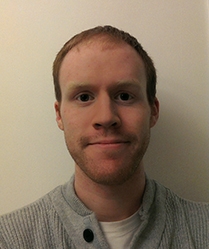Key Info
Bachelor of Science Computer Games Development
Entry route(s):
If you are a creative type of person who enjoys puzzles and solving problems, this could be the programme for you. If you enjoy any kind of games, whether computer games or traditional board games, particularly if you like playing with alternative/optional rules, then this might be the course for you.
Why Study Computer Games Development at UL?
The Computer Games Industry is an exciting field, currently outselling the film industry worldwide. Computer Game development is innovative and exciting from a technological and creative perspective, providing career opportunities for imaginative, logical, and energetic students. Graduates will have the satisfaction of seeing their work being enjoyed by a global audience. You will learn the art and science of computer games programming and design. Entry route to Computer Games Development at UL is via LM121 Computer Science Common Entry.
This programme will equip you with the skills and technological ability to develop both Computer Game and computer graphic related systems. You will study Computer Science, with special emphasis on topics relevant to Game Design such as software development, mobile devices, computer graphics and artificial intelligence.
You will also study topics relevant to development of a game concept to the final "shooting script" (prior to the programming).
The key aims of the B.Sc. (Hons) in Computer Games Development programme are to provide you with:
- Knowledge of the various programming languages and related platforms
- Skills in System Analysis, and integration of software components
- Expertise in areas such as the human-computer interface and artificial intelligence which will enable you to develop software for an array of computer graphics and computer games domains.
Learn more about our courses and upcoming events
What you will study
You will study the modules presented in Year 1 of the Common Entry route to Cyber Security and IT Forensics. The emphasis in Year 1 is on programming, an understanding of its basis, and the study of the physical machine on which programs run. Your study of Cybersecurity modules begins in semester 3 and runs throughout the course – including topics in Cryptography, Data Forensics, Cybersecurity Law and Regulations, and Host and Network Security. As you need to understand the platforms to which cybersecurity measures are applied, you will also study operating systems, networks, and web and mobile technologies throughout the course. Plenty of hands-on practical laboratory experience is provided throughout the course.
During the final year, you will have the opportunity to apply the skills learned in the previous three years in the specialist security and networking modules by undertaking a final year project which develops skills in design, implementation, testing and reporting. Each student will work with the guidance of an individual supervisor. The final year project will help you to pull together the skills and techniques that you have acquired throughout the course.
As with other UL courses, a Cooperative Education placement provides 30 weeks of industrial work experience. In this course, Coop takes place in the second semester of 3rd year and through the summer break preceding 4th year.
To find out more, visit the Department of Computer Science and Information Systems
| Semester 1 | Semester 2 | ||
| CS4012 | Representation and Modelling | CS4043 | Games Modelling Design |
| CS4141 | Introduction to Programming | CS4222 | Software Development |
| CS4221 | Foundations of Computer Science 1 | CS4182 | Foundations of Computer Science 2 |
| ET4011 | Fundamentals of Computer Organisation | ET4162 | Computing System Organisation |
| MA4111 | Discrete Mathematics | MA4402 | Computer Maths 2 |
| Semester 3 | Semester 4 | ||
| CS4013 | Object Oriented Development | CS4006 | Intelligent Systems |
| CS4023 | Operating Systems | CS4076 | Event Driven Programming |
| CS4416 | Database Systems | CS4115 | Data Structures and Algorithms |
| CS4004 | Software Testing and Inspection | CS4815 | Computer Graphics |
| CS4093 | Games for Global Markets | MA4413 | Statistics for Computing |
| Semester 5 | Semester 6 |
| Digital Modelling and Animation - CS4151 | Cooperative Education |
| Virtual and Augmented Reality Design - CS4071 | Cooperative Education |
| Mobile Application Development - CS4084 | |
| Artificial Intelligence for Games - CS4096 | |
| Machine Learning: Methods and Applications - CS4106 |
| Semester 7 | Semester 8 | ||
| CS4011 | Advanced Programming Concepts and Practices | CS4198 | Computer Games Development Project 2 |
| CS4085 | Computer Graphics II: Tools and Techniques | CS4227 | Software Design and Architecture |
| CS4125 | Systems Analysis and Design | CS4067 | Writing Games Analysis |
| CS4287 | Neural Computing | CS4168 | Data Mining |
| CS4197 | Computer Games Development Project 1 |
Entry requirements
| Minimum grades |
Applicants are required to hold at the time of enrolment the established Leaving Certificate (or an approved equivalent) with a minimum of six subjects which must include: Two H5 (Higher Level) grades and Four O6 (Ordinary Level) grades or four H7 (Higher Level) grades. Subjects must include Mathematics, Irish or another language, and English. |
|---|---|
| Subject requirements |
In addition, applicants must hold a minimum grade O2/H6 in Mathematics. |
| Additional considerations |
A Special Mathematics Examination will be offered at UL following the Leaving Certificate results for those students who did not achieve the Mathematics requirement. We welcome applications from mature students. Mature applicants must apply through the Central Applications Office (CAO) by 1 February. Application information for mature student applicants (PDF) Entry to this course is through the common entry course, LM121 - Bachelor of Science in Computer Science |
| Non-EU Entry Requirements |
|
How to apply
| Where are you applying from? | How to Apply |
|---|---|
| Ireland | Irish students must apply to UL via the CAO. More information can be found here |
| The UK | Students who have completed their A-Levels can apply to UL via the CAO. More information can be found on the Academic Registry website |
| The EU | EU Students can apply to UL via the CAO. More information can be found on the Academic Registry website |
| Non-EU country | If you are outside of the EU, you can apply for this degree here |
Fees and funding
Student course fees are broken into three components - Student contribution, Student Levy and Tuition Fees.
A number of illustrative examples of fees for this course based on the current fee levels have been set out in the tables below.
An explanation of the components, how to determine status and the criteria involved is provided below the examples as is a list of possible scholarships and funding available.
EU Students with Free fees status in receipt of a SUSI grant
| HEA pays | Tuition Fees | €4,262 |
| SUSI pays | Student contribution | €3,000 |
| Student pays | Student Levy | €100 |
| €7,362 |
EU Students with Free fees status not in receipt of a grant
| HEA pays | Tuition Fees | €4,262 |
| Student pays | Student contribution | €3,000 |
| Student pays | Student Levy | €100 |
| €7,362 |
Students with EU fee status not in receipt of a grant
| Student pays | Tuition Fees | €4,262 |
| Student pays | Student contribution | €3,000 |
| Student pays | Student Levy | €100 |
| €7,362 |
Non-EU Students
| Student pays | Tuition Fees | €20,900 |
| Student pays | Student Levy | €100 |
| €21,000 |
Student course fees are comprised of the following components:
Student Contribution
Annual charge set by the government for all full-time third level students. All students are liable unless they have been approved for a grant by Student Universal Support Ireland (SUSI). Please refer to https://www.studentfinance.ie to determine your eligibility for a grant and for instructions on how to apply. The current student contribution is set at €3000.
Student Levy
All students are liable to pay the Student Levy of €100. Please note the Student Levy is not covered by the SUSI Grant.
Tuition Fees
These are based on Residency, Citizenship, Course requirements.
Review the three groups of criteria to determine your fee status as follows
-
Residency
- You must have been living in an EU/EEA member state or Switzerland for at least 3 of the 5 years before starting your course
-
Citizenship
- You must be a citizen of an EU/EEA member state or Switzerland or have official refugee status
-
Course Requirements
(all must be met)
- You must be a first time full-time undergraduate (Exceptions are provided for students who hold a Level 6 or Level 7 qualification and are progressing to a Level 8 course in the same general area of study).
- You must be undertaking a full-time undergraduate course of at least 2 year’s duration
- You cannot be undertaking a repeat year of study at the same level unless evidence of exceptional circumstances eg serious illness is provided (in which case this condition may be waived)
Depending on how you meet these criteria your status will be one of the following -
- Free Fee Status: You satisfy all three categories (1, 2 and 3) and therefore are eligible for the Higher Education Authority’s Free Fees scheme.
- EU Fee Status: You satisfy both the citizenship and residency criteria but fail to satisfy the course requirements and are liable to EU fees.
- Non EU Fee Status: You do not meet either the citizenship or residency criteria and are therefore liable to Non EU fees.
More information about fees can be found on the Finance website
These scholarships are available for this course
| Title | Award | Scholarships Available |
|---|---|---|
| Johnson and Johnson WiSTEM2D Programme |
These scholarships are available for all courses
| Title | Award | Scholarships Available |
|---|---|---|
| All Ireland Scholarships - sponsored by J.P. McManus | €6,750 | 125 |
| Cooperative Education Award | 1 medal per faculty | |
| Elaine Fagan Scholarship | €5,000 | 5 |
| Financial Aid Fund | ||
| Higher Education Grants & VEC Grants | ||
| Paddy Dooley Rowing Scholarship | €2,500 | |
| Plassey Campus Centre Scholarship Programme | ||
| Provincial GAA Bursaries Scheme | €750 | |
| Stuart Mangan Scholarship | ||
| The Michael Hillery and Jacinta O’Brien Athletics Scholarship | Various benefits equating to over €7,000 in value | |
| UL Sports Scholarships | Varies depending on level of Scholarship | Multiple |
Your future career
Employability Skills from this degree
- Understanding the fundamentals of software for computer graphics
- Working in teams and liaising with other professionals to complete complex, software-based games projects
- Working creatively and problem-solving
- Communicating (written and verbal)
- Developing skills in cinematography and story writing
- Cultural awareness: developing games appropriate to international markets
- Technical ability and solid skills in software development:
- Object Oriented Design
- Mobile apps
- Data structures and algorithms
- Self-motivation and the ability to work independently
- Flexibility in meeting deadlines and client requirements
Further Study Options
Further Study Options
- MA in Journalism, Sport
- MA Technical Communication and eLearning
- MA English
- Grad Dip/MA in Public Administration
- MA Creative Writing
Job titles for graduates with this degree
- Graduate Programme Intern
- IT Technician
- Junior IT Consultant
- Junior Software Engineer
- Marketing Executive
- Mission Scripter
- Programming Engineer
- QA Engineer
- Research Assistant
- Service Engineer
- Social Localisation Programmer
- Software Developer
- Software Engineer
- Software Programmer
- Software QA Tester
- System Document Author
- Systems Software Engineer
- Systems Technician
- Technical Support
- Technology Analyst (Consulting Department)

Graduate Profile
Ryan Kerswill
As a Network Programmer, a typical day involves designing systems, implementing features, research and fixing bugs. Communication is important and our team discusses various topics every day. This includes a daily meeting where we explain what we have been working on to keep immediate team members informed of each other's work, and if there are any problems. On complex problems, we design them together for more feedback on the current solution. Sometimes we review each other's work before submitting it. My course in Computer Games Development at UL was extremely relevant to the industry I have become part of. I learned many skills that are required for my job, so that every day, I use the knowledge gained from the course. The internship I did as part of the Co-Op program was invaluable and helped me to secure a job after graduation. Having work experience before graduating sets you apart from other candidates competing for the same job.
Ryan is currently employed as a Junior Network Programmer with Ubisoft in Montpellier, France.
Student Profile
Daniel Keohane
I have always loved playing video games, but I was also extremely interested in how they were made. I looked at some of the topics covered in this course and felt it was the perfect option for me. This degree programme will teach you about software engineering, with a strong leaning towards games development. We learn about games-related subjects like computer graphics and AI, while still covering generic software modules like Object Oriented Development and Software Architectures.
I really enjoy my course - it has provided me with a number of opportunities to enter programming competitions around the country which are huge fun. Gamesfleadh is held every year and comprises of a number of programming-related competitions, i.e. Robocode where contestants must develop an AI system for a virtual battle bot using the Java programming language to compete against other battle bots.
For my Co-op work placement, I went to DemonWare in Dublin. DemonWare specialises in online software services for some of the top game developer studios in the world, powering some of the most popular video game titles. I worked for the Call of Duty team; my tasks involved developing features for the upcoming Call of Duty title and bug-fixing issues in existing titles. Through my work placement, I gained a wealth of hands-on experience and developed my knowledge of Python, C++ and Git. This work placement at Demonware has been invaluable and is one of my strongest selling points when it comes to applying for any graduate position. While my development work was on the Call of Duty titles, I am credited in: Call of Duty: Ghosts, Diablo 3 and Skylanders: Swap Force


